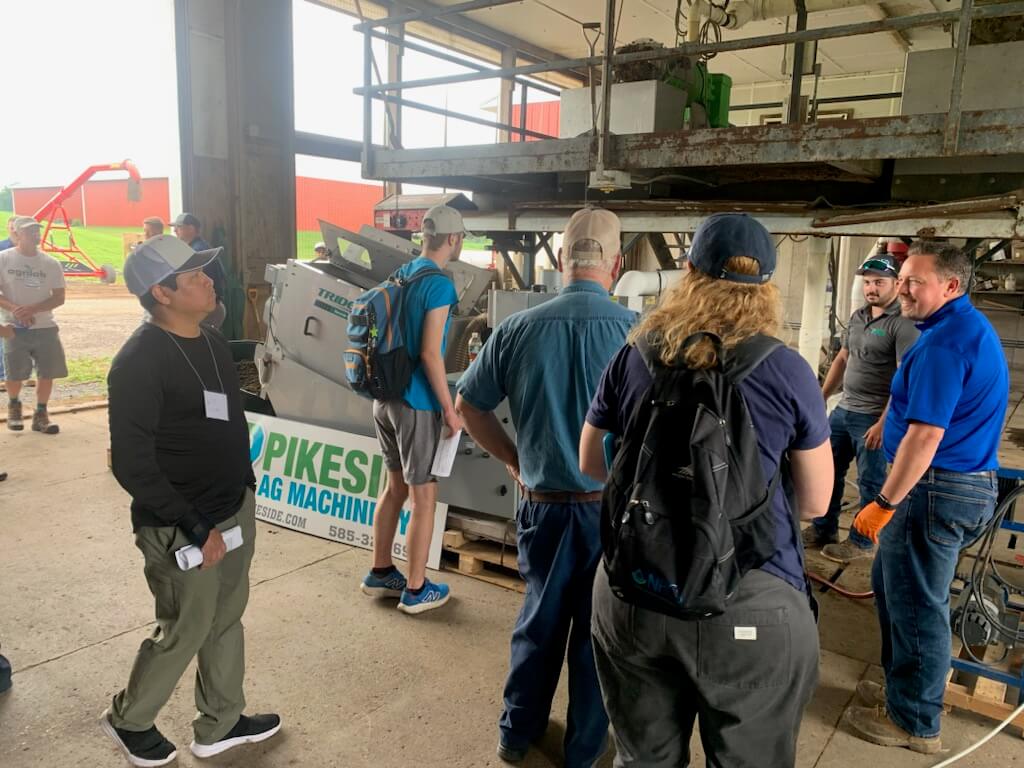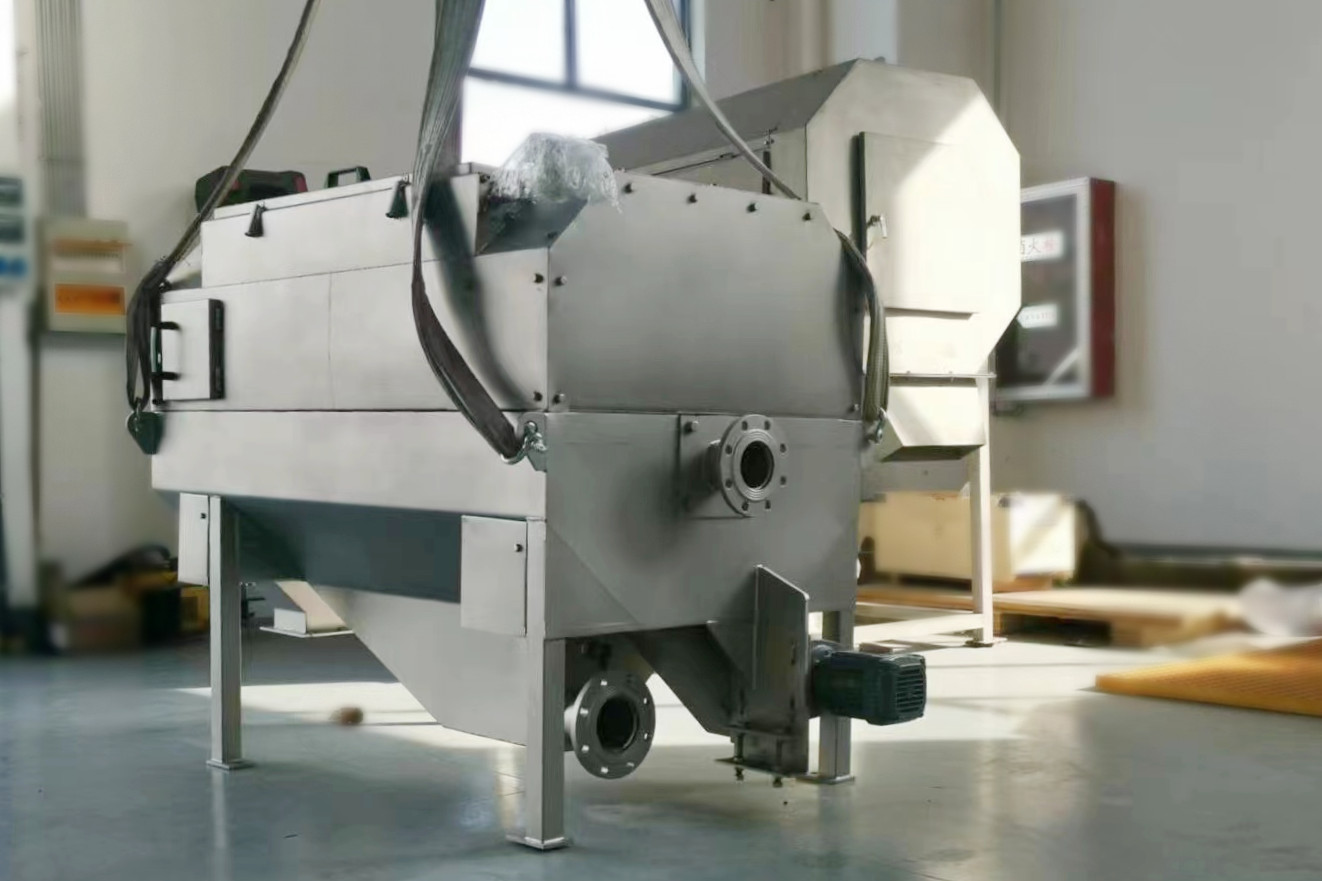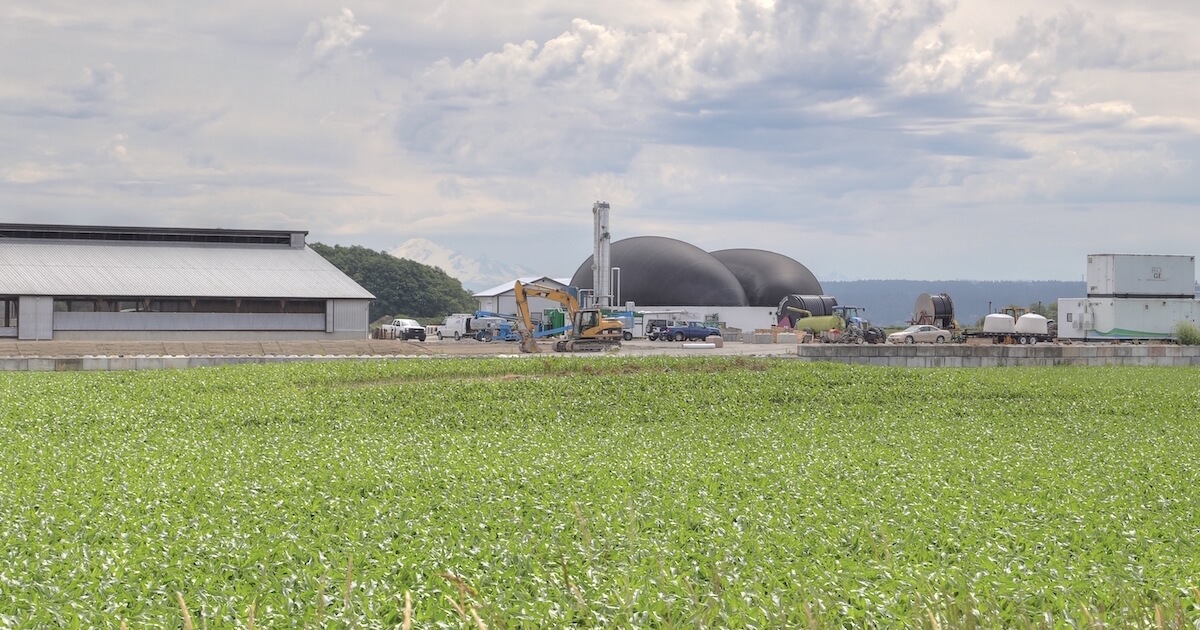Earlier this month our team had an opportunity to showcase advanced manure treatment with the…
Water recovery from dairy cow manure
Water recovery from manure – November 18th, 2020. Water is one of the most important resources on a dairy farm. It’s important as drinking water for the animals and milking and cow cooling systems require water as well. And what about the manure collection and transfer system? Many dairies use water to help convey the manure out of the barns with flush or flush flume systems. Even with scrapers or vacuum trucks which don’t require additional dilution, the amount of water that is contained in the manure is very high: approx. 88-90%. That number increases even more for barns with flush systems. By the time we account for facility water, young and dry cows we can assume an average of 30 gal of manure slurry per milking cow per day. With increased herd size the sheer volume of manure can become a challenge.
THE EVOLUTION OF MANURE SEPARATION
The key to managing this manure challenge is effective separation. This is certainly not a new idea as mechanical separators like drum or slope screens have been around for decades. But the pioneer work that manure experts like Trident have contributed in regard to fine-solids removal has redefined the standards of advanced manure treatment. What the industry now refers to as primary separation is the process of removing large particles. Drum screens and screw presses for instance do a great job during this initial conditioning step. What is left after this treatment is manure liquid that contains mainly very fine particles including NPK nutrients. Tests have established that a large portion of these particles is less than 25 μm in size. For comparison: a human hair is about 70 μm. Needless to say that mechanical separators are not suitable to achieve sufficient fine-solid separation.
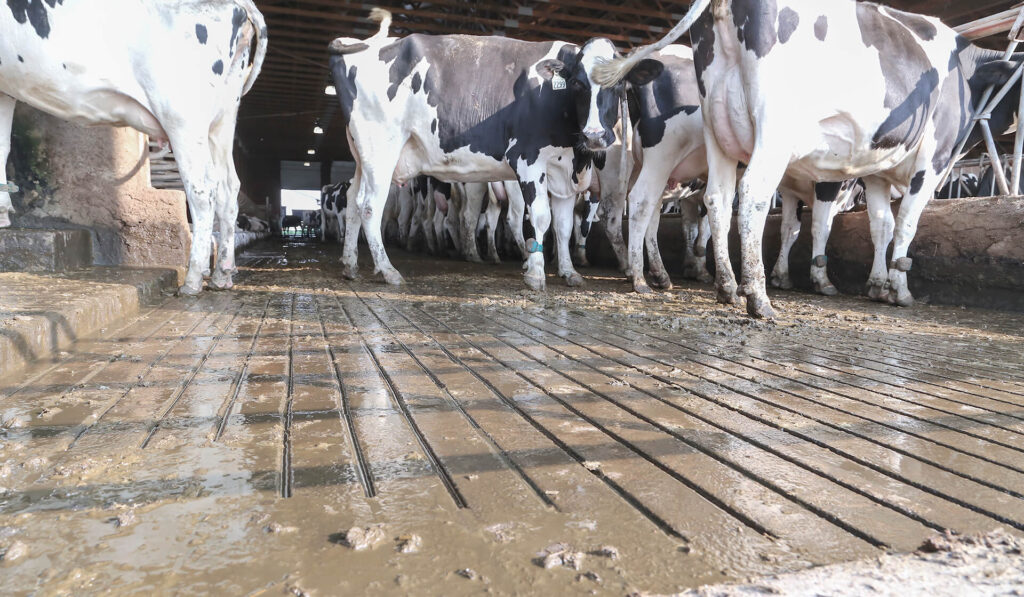
Image: Manure flush system use water to collect and transfer the manure from the alleys in the barn to tanks or lagoons.
WATER 99.9% SOLIDS FREE
Trident’s purpose built fine-solids separation system combines polymer assisted treatment with suitable mechanical separation. The system is capable of removing nearly all solids and produces 99.9% solids free water. Surprisingly, this impressive treatment performance is possible without requiring large infrastructure. In fact, the modular TNZ Water & Nutrient Recovery unit is a drop-in ready containerized system that eliminates the need for building expansions or new construction. The turn key system also includes pumps, conveyors and controls. It can be integrated in a very short time, even with existing primary separators.
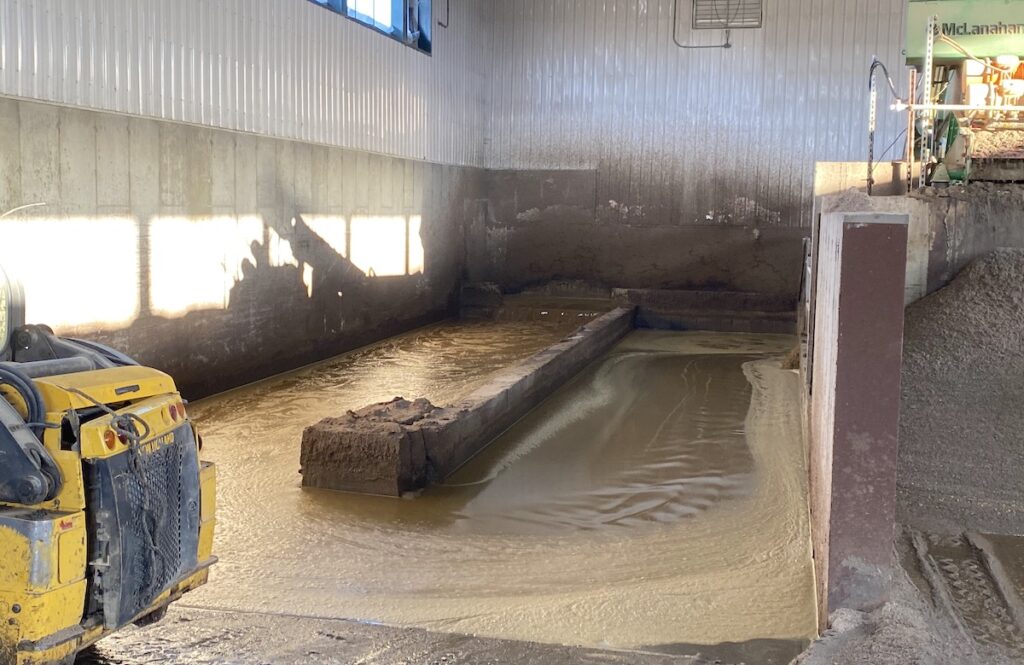
Image: Clean recycling water greatly improves the performance of sand separation systems.
THE BENEFITS OF CLEAN WATER
So what are the benefits of water recovery from manure? The ability to recycle clean water impacts different areas. Less solids going into the lagoon eliminates expensive clean-outs for prolonged periods. Lower organic loading also reduces odour. Let’s look at land application. Clean water allows for the use of high-efficiency irrigation systems that require only a fraction of the costs that conventional hauling and land application would consume. And speaking of hauling: with the amount of water removed from the manure solids, an average 2,000 cow dairy reduces 10 truck loads of manure solids per year to less than one. Clean recycling water is also a big advantage for dairies that recover sand for bedding purposes. Cleaner water helps with sand settling and removes organic particles more effectively. And of course, a portion of the processed water is also cycled back to the barn’s flush system.
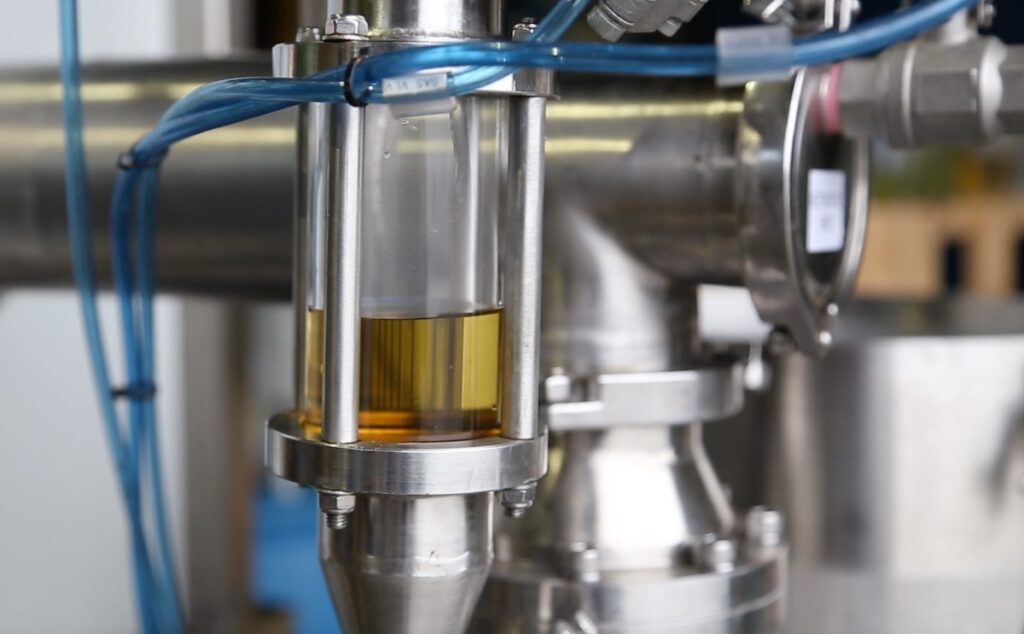
Image: The Trident ultrafiltration system is a suitable downstream treatment option.
When clean is not clean enough: farms that want to take it a step further have the option of adding the Trident membrane. This ultrafiltration system completely removes any residual nutrients and all bacteria from the processed water. In this scenario the Trident Wave system is a very cost-effective pretreatment that reduces the required capacity of the downstream UF module.
If you are interested in learning more details about the Trident Wave or membrane system give our team a call at 1-800-799-3740.

